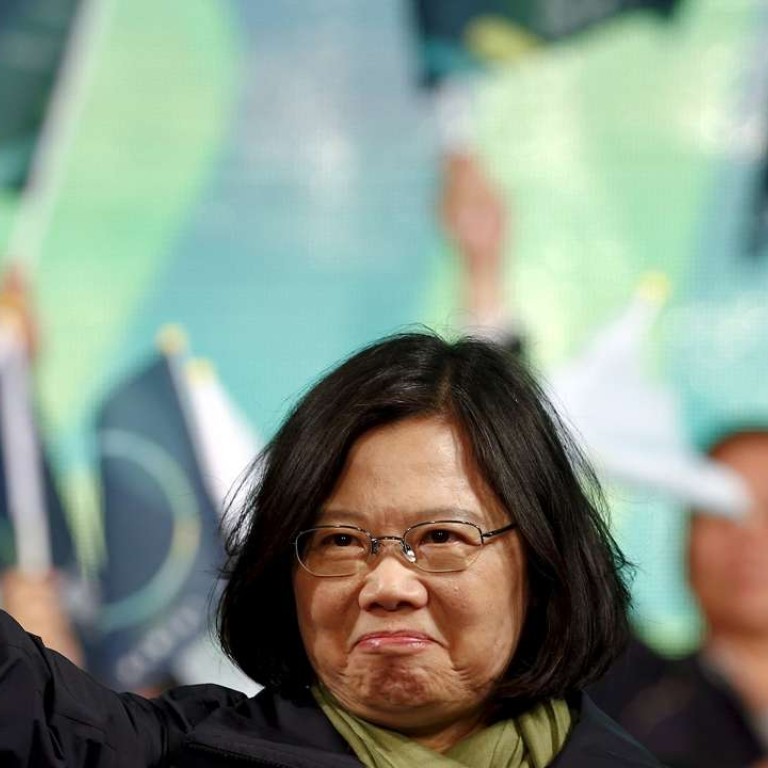
Recognise ‘one China’ or risk deep rift in cross-strait ties, Beijing think tank warns Taiwan’s Tsai
Mainland adviser says exchanges could be called off if president-elect ignores 1992 consensus
Official exchanges between Beijing and Taipei may be halted if the administration of president-elect Tsai Ing-wen hesitates to recognise the 1992 consensus, a top mainland Taiwan affairs adviser warned on Wednesday.
“If Taiwan’s leader [Tsai] fails to make a clear position on the 1992 consensus in her inauguration speech on May 20, it will have a great impact on the cross-strait relationship and future development,” Li Yihu, dean of Peking University’s Taiwan Studies Institute, said at a press briefing organised by the State Council Information Office.
Li said the impact would include the suspension of all official and semi-official exchanges, including talks between Beijing’s Taiwan Affairs Office, Taipei’s Mainland Affairs Council and both the non-governmental intermediaries, the Association for Relations Across the Taiwan Strait and the Straits Exchange Foundation.
READ MORE: Chinese President Xi Jinping says Beijing’s policy on Taiwan ‘to remain consistent’ after Tsai Ing-wen takes office
The warning followed President Xi Jinping’s first public remarks on cross-strait relations since the island’s main pro-independence opposition party won both presidential and legislative elections in January.
Warning against Taiwan independence, Xi said on Saturday that Beijing’s policy on Taiwan would remain clear and consistent irrespective of the “change in Taiwan’s political situation”.
READ MORE: Don’t make us suffer even more, Taiwanese businessmen on Chinese mainland tell president-elect Tsai Ing-wen
Liu Guoshen, head of Xiamen University’s Taiwan Research Institute, said political and economic cross-strait exchanges would be harmed if Tsai and her Democratic Progressive Party sought independence through a referendum.
“Beijing is now facing very strong internal pressure on opposition to Taiwan independence, especially from netizens who say they will punish Tsai and other political parties with strong anti-mainland sentiment,” Liu said.
“That’s why Beijing has to push Tsai to make a clear declaration on her policy on the mainland, saying it should stick to the ‘One China’ policy, or the 1992 consensus.”
The consensus refers to a tacit understanding reached between Taipei and Beijing in 1992 that there is only “one China” but each side has its own interpretation of what that China stands for.
“Beijing would allow Tsai to use her own wording to define the ‘1992 consensus’. The key rule is, she should stick to the one-China principle,” Li said.

